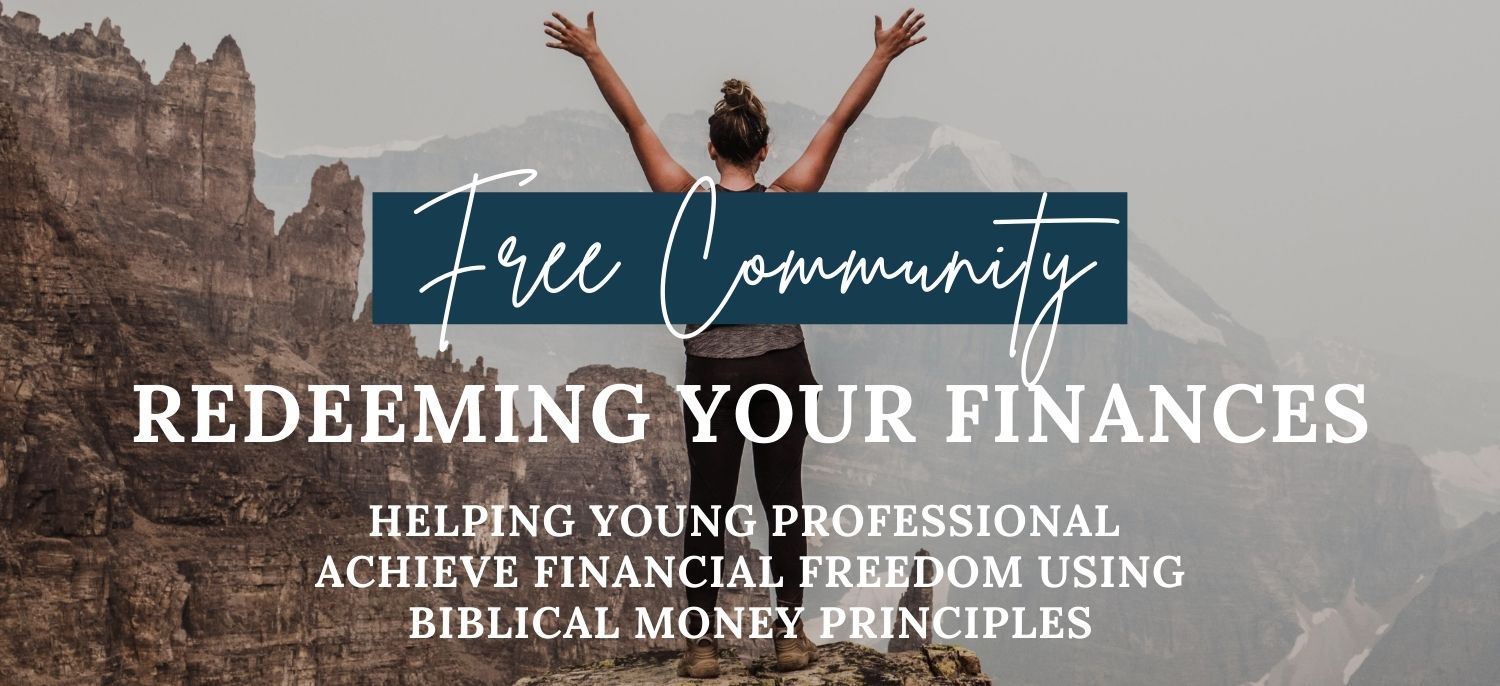What does it mean to be a Christian in the workplace? How do we bridge the gap between our faith and our work? What are other believers doing in their industries to further the Kingdom of God? How can we be great Christian business leaders?
As a Christian seeking to integrate my faith into every area of my life, these are some of the questions that I held in my head while heading to the Business for the Common Good conference.

Denver Institute for Faith and Work
For those of you unfamiliar with the Denver Institute for Faith & Work (DIFW), it is “an educational nonprofit dedicated to forming men and women to serve God, neighbor, and society through their work”. They help to equip Christians on how to best use their faith in the workplace by hosting events throughout the Denver Metro area. They are especially geared towards Christian business leaders.

I became familiar with them back in 2016 when the founder of DIFW, Jeff Haanen, came to speak in my entrepreneurship class. Soon after that first encounter, Brian Gray, the COO of DIFW and Director of the 5280 Fellowship, came to speak at my church. I was so impressed with what they were doing at DIFW and their mission to empower Christians to live out their faith in their work.
At the Business for the Common Good conference, they had 14 different Christian business people. Each person spoke about their experiences and answered questions about their work. The overarching theme of the day was to express how we are to pursue professional excellence and use our gifts and resources to create a lasting impact for the Kingdom.
The Gospel for Business
Joanna Meyer, the director of events and sponsorships at DIFW, gave the first talk on The Gospel for Business.
She shared about how we as Christians tend to view work as this “other.” We tend to see it as a place we are expected to go to, and maybe evangelize, and afterward leave and get back to what really matters. But Meyer challenged everyone to think of work as good. Why? Because we are made in the image of a God who works, and His first instruction to Adam and Eve was to work. They were to be fruitful, care for and develop the earth. God intended for us to work and he intended for work to be good.
Meyer described that the purposes of business is to serve. We can do this by providing goods and services that enable a community to thrive. By giving opportunities for meaningful work. We can also do this by creating wealth
One thing I really enjoyed about Meyer was her obvious passion for doing the Lord’s work. I subscribe to DIFW’s podcast where Meyer hosts, and I have picked up on her true love of doing Kingdom-oriented work. She speaks with authenticity when conversing about God, and frankly, it is contagious!
Keynote – Jay Jakub
The keynote speaker for the event was Jay Jakub, the senior director of research at Mars, Inc. Jakub is also the co-author of Completing Capitalism: Heal Business to Heal the World. Jakub helped to develop the business model, “economics of mutuality,” which helps companies move their focus from profit maximization to creating value for individuals and communities.
I found Jakub pretty fascinating. He helped to recognize that our economy is drastically changing because the way that people are motivated has significantly changed. Most millennials are no longer motivated by money, but rather by purpose. Therefore, the value of money has diminished. Jakub has found that millennials would rather do something meaningful than doing something that produces a lot of money.
Businesses are now needing to shift their focus from financial capital to social, human, and natural capital. Jakub and his partner decided to see what the Bible had to say about this. They recognized that Jesus taught us to love people first over everything else.
When Jakub and his partner implemented this tactic in their work they found that it created wins for everyone! One thing they sought was to bring value to others, just as Jesus did. They focused on finding the “pain points” of other companies and worked on filling those needs. Then in return, those companies would help Jakub by bringing value to him. Through this process, they experienced major financial growth!
One point that really hit home was that this isn’t just a clever way to make a profit. It is about healing; healing people and the economy. Just as Jesus sought to heal the world, so should we.
Sharing the Gospel
Being an advocate for Business as Missions, I do want to be honest and share something that frustrates me. Jakub has an amazing platform as the senior director of research at Mars, Inc. But rather than using that platform to explicitly share the Gospel with the other executives around him, he doesn’t feel that he can be that Mars is a secular company.
I feel like that is an excuse that Satan tries to get all of us to believe. Certainly, Jesus tells us to love God and love others as the greatest commandments, which in many ways displays our faith; however, many of us, including Jakub, take this to only mean we share the gospel with others by our actions. Sharing the gospel is not only done through our actions in the workplace and the systems we put in place but more importantly it is done explicitly by sharing the good news of Jesus Christ with our words. God has given each of us a platform and a place to share with those around us, so don’t miss out on it by not talking about Jesus. Society tells us that it isn’t okay to talk about religion with others. That is just the attack of Satan, trying to keep us from sharing the Truth about the relationship that Jesus Christ longs to have with each of us…
Magneti – Sponsor Company
Jesse Marble, the chief marketing officer at Magneti, gave a quick introduction to their company. I was pretty impressed by what they are doing so I wanted to share it with you guys.

Jesse Marble, Chief Marketing Officer at Magneti
They are a marketing company that helps other businesses talk about themselves well. Marble explained that 70% of a customer’s buying experience happens before they ever talk to the business. This is typically all done online, through Google searches, looking at company profiles on social media, and through the website experience. Magneti wants to help good companies who are doing great things, talk about themselves well.
One thing that Marble said that I really loved was that his staff is like his congregation. His company is his ministry. I loved this concept because I believe that we truly have a great honor to represent Christ well, by loving and shepherding our employees.
Redemptive Real Estate Panel
This is the part of the day that I loved the most, mainly because it pertains to what I do! I was thrilled to hear from 3 successful real estate investors about how they are implementing their faith in their investing.

The three panelists were Marti Page, founder of the Anchor Group, Jack Kim, founder of KORE (Kingdom Oriented Real Estate), and Haroun Cowans, the chief real estate officer for the Firefly Group and Associate Pastor at Church in the City.
It was very clear by the way that they explained their endeavors that each one of these investors carefully considers God’s will for their investing.
Jack Kim
Kim explained that he views buildings like people, in that there is a redemptive story for each one. He strives for excellence in all of his areas of work so that it creates a platform for him to share the Gospel and to glorify God.
Marti Page
Page described how when she is looking to purchase an apartment building, she walks through each individual unit. She wants to see the people living there and understand how she can add value to those homes, but also to humanize the investment rather than just seeing it as numbers on a paper. Walking through each unit reminds her of the impact that the upgrades will bring to each person.
Haroun Cowans
Cowans shared how when he invests in commercial real estate, he tries to find ways that he can bring more value and opportunities to the community. He wants to provide an atmosphere that will enhance the surrounding area but also attempts to keep things affordable.
One takeaway that I want to implement into my own investing is something that Page had described. She is always looking for ways to create win-win situations for both herself and her tenants. One way she found she could do this was by providing a split-pay system. Page recognized that many of her tenants live paycheck to paycheck. In order to show some sympathy to her tenants, she allows them to pay 50% of the rent at the beginning of the month and the other half in the middle of the month.
Courageous Leadership

For the last panel, they brought up three business leaders to discuss some of the struggles that we all face in Christian leadership. The three panelists were Patrick Ahern, president and CEO of Red Rocks Credit Union, Jill Anschutz, freelance consultant and board member at DIFW, and Barry Rowan, EVP, and CFO of GoGo Inflight.
Barry Rowan
Rowan really challenged me in the way that I view fear and seemingly unmanageable situations. He has gone into many different companies to help them overcome some of the most challenging situations. Every time when he is faced with one of these challenges he acknowledges the fear he has and he goes to God with it. He seeks to be in God’s presence by reading what the Bible has to say about what he is facing. Rowan has come to the conclusion that God is asking him “Are you willing to give up your future for me?” I was very inspired by how Rowan was able to overcome some of the most difficult obstacles, and he gives all credit to God.
Jill Anschutz
I’m sure many of you are familiar with the #metoo movement that has swept across our nation, beginning back in 2017. It is a movement against sexual harassment and sexual assault that brought light to the fact that many cases go unreported. It has exposed numerous officials, leaders, and executives.
Well, Anschutz was curious about the impact that the movement is having on Christians. She did a study on how believers are reacting towards it, and she found that many Christian men are afraid to be accused of sexual harassment. This has lead to men avoiding meeting with women one-on-one. Anschutz pointed out that it is becoming a disadvantage for Christian businesswomen because if men are avoiding meeting with them, they will have a hard time advancing in their careers. She suggested that rather than avoiding the issue altogether, Christians need to collaborate with one another to work through these problems together.
Takeaways
Overall, I had a fantastic time at the conference. It was really neat to see so many Christians come together to discuss how we can glorify God in the workplace. In this day and age, it can be discouraging when you hear how many people don’t know Jesus. But going to an event like Business for the Common Good gives me encouragement to know that I am not alone in my endeavor to become more like Christ, especially in our jobs.
As Christians, we need to be putting the needs of others above our profits. We need to challenge ourselves and each other to search for new ways to embody Kingdom-oriented practices in our businesses. As this conference has shown, it is important to meet, collaborate, and encourage one another in our pursuit of being Christ-like in the workplace.




